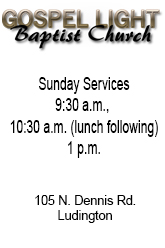Guest column by Joseph Bizon. Oceana County Prosecutor.
Governor Snyder recently announced a comprehensive initiative on criminal justice reform. A Supreme Court Justice once said there are four pillars of justice: 1) to punish the offender; 2) rehabilitate the offender; 3) deterring others from committing the same crime; 4) restoring the victim, to the extent possible, to whole. These factors must be balanced to the extent possible to serve the interests of justice and the interests of our community.
An approach which advocates merely punishment to the exclusion of the other interests simply does not work. Most offenders will be at some point returned to the community in which they committed their crime. In that interest, Michigan has long recognized that those who commit some offenses while in their youth may warrant a different approach.
Michigan’s Holmes Youthful Trainee Act can draw roots to at least 1927. At least that far back, Michigan recognized that a criminal record can have drastic consequences for an offender. The offender may find they are unemployable, and unable to provide for himself or herself, and his or her family. This result may not serve the community or the individual.
Michigan Compiled Law 762.11 offers the courts an option. In the event that the person accused of a crime is willing to plead guilty, acknowledging their wrongdoing, the court may assign a person to Youthful Trainee Status. Until this year, this was only available to persons who committed the act after their 17th birthday (rendering them an adult offender) and before their 21st birthday. The act was amended this year to allow for assignment to this status for offenders who are 21-23 years old, if the prosecutor approves of the resolution.
A defendant may only avail of this status one time. Furthermore, major offenses are not eligible for this treatment. Life offenses, major controlled substance violations, drunk driving and sexual assaults other than statutory sexual assault are prohibited from receiving Youthful Trainee status.
The court may still impose jail or even prison for the offender in addition to probation (as much as three years). The court will also impose fines and oversight fees. The court may also order substance abuse treatment, counseling, finding and maintaining employment or finishing school or completing a GED.
As noted earlier, those convicted of a felony often carry a scarlet-letter-like-stigma. For this reason, the probation discussed here is non-public and not disclosed to the public outside of compliance with the Victim Rights Act. If the youthful offender can successfully complete this diversion program, the conviction will not be entered and the probation will not be disclosed on public records.
In the end, if an offender is able to successfully complete probation and all terms imposed, he or she might be able to walk away from the court system with a debilitating conviction preventing them from being a productive citizen in the future. If the person cannot conform their behavior to what the community expects, the court can impose further consequences, and now he or she has to live with the conviction.
 (1).png)
.jpg)
-Mason-County-Press.png)




.png)










































.png)















